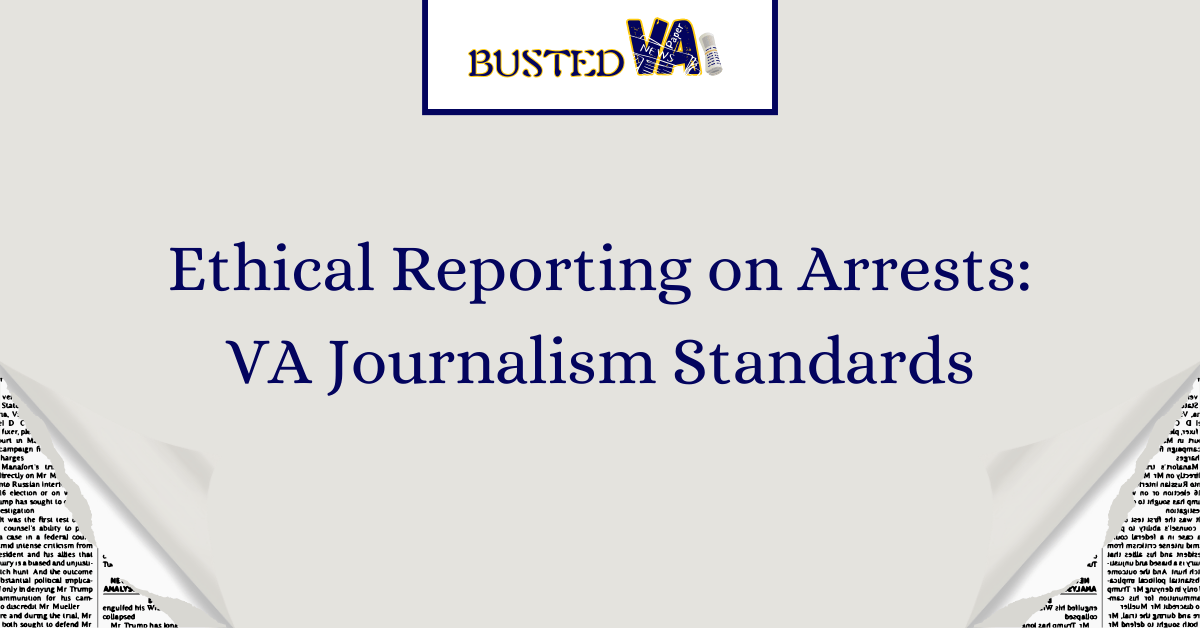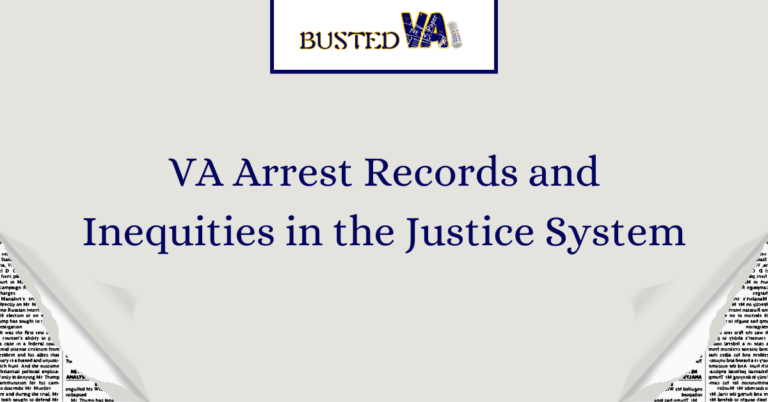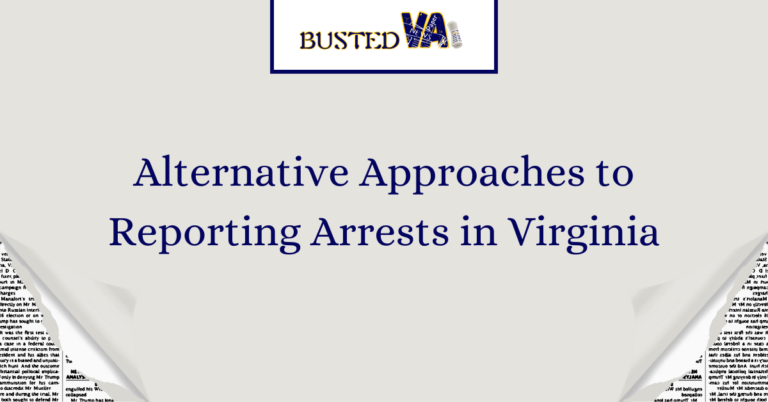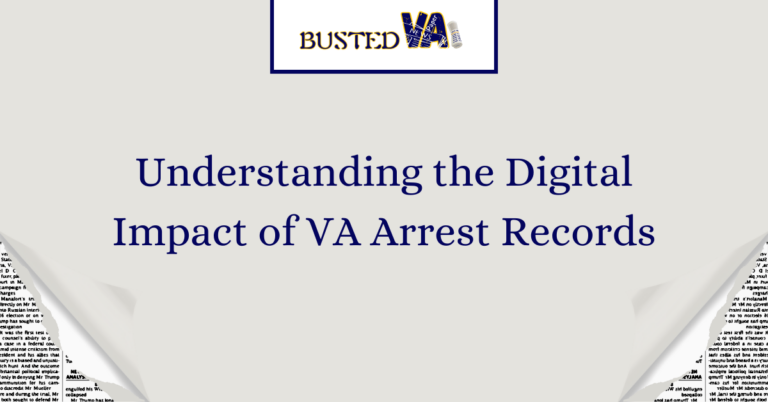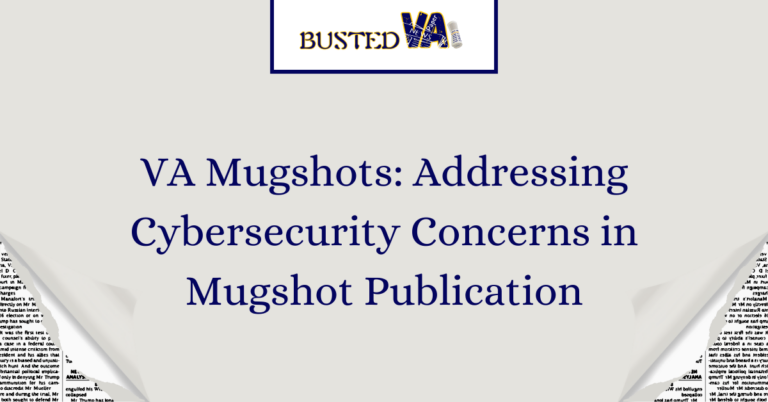Ethical Reporting on Arrests: VA Journalism Standards
Reporting on arrests is an important aspect of journalism that requires adherence to ethical standards. In Virginia, journalists are expected to uphold these standards to ensure accurate and fair reporting. Ethical reporting on arrests not only serves the public’s right to know but also protects the rights of individuals involved.
When reporting on arrests, it is crucial to provide accurate information without sensationalizing or stigmatizing individuals. Journalists should focus on the facts surrounding the arrest, such as the charges filed and the legal process. It is important to avoid speculation or assumptions that can harm an individual’s reputation or compromise their right to a fair trial.
Guidelines for Accurate Reporting
When reporting on arrests, journalists play a crucial role in providing the public with accurate and unbiased information. Adhering to ethical standards ensures that the reporting is fair and respects the rights of the individuals involved.
Stick to the Facts
The primary objective of reporting on arrests is to present the facts surrounding the case. Journalists should focus on the charges filed, the legal process, and any relevant details that are essential for the public to understand the situation.
By avoiding speculation or assumptions, reporters can maintain their credibility and prevent harm to an individual’s reputation. It is important to remember that everyone is innocent until proven guilty, and journalists should respect this principle.
Avoid Sensationalism
Sensationalizing an arrest can negatively impact both the individual involved and the public’s perception of the justice system. Journalists should refrain from using exaggerated language or focusing solely on the dramatic aspects of the arrest.
Instead, the reporting should be objective and informative, providing a balanced perspective that gives readers a clear understanding of the situation. This approach not only protects the rights of the accused but also promotes trust in the media.
Respect Privacy
While reporting on arrests, it is crucial to respect the privacy of individuals involved, especially if their charges are later dropped or they are found not guilty. Journalists should exercise caution when publishing personal details, ensuring that their reporting does not cause unnecessary harm or invasion of privacy.
Respecting privacy also extends to the families of those arrested. Sensitivity should be exercised when reporting on arrests, understanding that the impact extends beyond the individual themselves.
Verify Information
Accuracy is paramount when reporting on arrests. Journalists should verify information from reliable sources before publishing. This includes confirming the charges, cross-checking with law enforcement officials, and seeking statements from the accused or their legal representatives.
By double-checking the facts, journalists can avoid spreading misinformation and maintain their credibility as reliable sources of news. It is essential to present the truth to the public and avoid contributing to any potential biases or misconceptions.
Provide Context
When reporting on arrests, it is important to provide context to help readers understand the broader picture. This can include explaining the legal process, discussing prevalent issues related to the case, or highlighting any previous incidents or patterns that may be relevant.
By providing context, journalists can help the public form a more informed opinion and foster a deeper understanding of the complexities surrounding arrests and criminal justice.
In conclusion, ethical reporting on arrests requires journalists to adhere to guidelines that prioritize accuracy, fairness, and respect for the rights of individuals. By sticking to the facts, avoiding sensationalism, respecting privacy, verifying information, and providing context, journalists can fulfill their role in serving the public while maintaining professional integrity.
FAQs
What are the VA Journalism Standards for Ethical Reporting on Arrests?
While there may not be specific “VA Journalism Standards” exclusively for reporting on arrests, ethical journalism standards are generally universal across jurisdictions. In Virginia, as in other places, journalists are expected to adhere to established ethical principles in their reporting. These principles include accuracy, fairness, impartiality, respect for privacy, and a commitment to providing the public with reliable and unbiased information.
Why is it important to have ethical reporting on arrests?
Ethical reporting on arrests is crucial for maintaining the integrity of journalism and ensuring a fair and informed public discourse. It helps balance the public’s right to know with an individual’s right to privacy. Ethical reporting prevents the dissemination of misleading or inaccurate information, which can unfairly harm the reputation of individuals involved in legal proceedings. By adhering to ethical standards, journalists contribute to a more transparent and just society.
What does ethical reporting on arrests entail?
Ethical reporting on arrests involves several key principles:
- Accuracy: Providing factually correct information without sensationalism or exaggeration.
- Fairness and Impartiality: Offering balanced coverage that presents multiple perspectives and avoids bias.
- Respect for Privacy: Avoiding unnecessary intrusion into the personal lives of individuals, especially when reporting on arrests.
- Verification: Ensuring the accuracy of information through thorough fact-checking before publication.
- Sensitivity: Being mindful of the potential impact of reporting on the individuals involved and their families.
- Context: Providing sufficient context to help readers understand the complexities of the legal process and the presumption of innocence until proven guilty.
How does ethical reporting on arrests benefit the community?
Ethical reporting on arrests benefits the community in various ways:
- Informed Public: It helps the public stay informed about legal proceedings and the criminal justice system.
- Preservation of Rights: Ethical reporting protects the rights of individuals by avoiding premature judgments and ensuring a fair legal process.
- Community Trust: Journalistic integrity fosters trust between the media and the community, reinforcing the role of journalism as a reliable source of information.
- Social Harmony: Balanced reporting contributes to a more harmonious society by minimizing the potential for misinformation to fuel prejudice or sensationalism.
What should journalists consider when reporting on arrests?
When reporting on arrests, journalists should consider:
- Presumption of Innocence: Emphasizing that individuals are presumed innocent until proven guilty.
- Avoiding Sensationalism: Resisting the temptation to sensationalize details for dramatic effect.
- Impact on Families: Recognizing the potential emotional toll on the families of those involved.
- Balanced Reporting: Presenting a balanced account by including relevant context and diverse perspectives.
- Legal and Ethical Guidelines: Familiarizing themselves with legal and ethical guidelines related to reporting on criminal proceedings.
By following these considerations, journalists contribute to responsible reporting that upholds ethical standards and serves the public interest.

